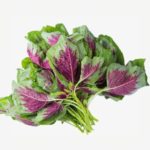Cold hands and feet are a common occurrence when the weather turns chilly. However, some people experience excessive coldness. This condition is not just a result of external temperature changes, but may be due to underlying medical conditions.
Cold hands and feet can be caused by a deficiency in certain vitamins, such as vitamin B or iron, leading to anemia (a lack of healthy red blood cells in the body). Red blood cells carry oxygen to the tissues and cells throughout the body, providing the necessary heat and maintaining body temperature. When the body is deficient in vitamins and minerals, it can make you feel colder than others.

Vitamin B12 deficiency
Vitamin B12 is commonly found in animal products and is less abundant in plant-based foods. A deficiency in vitamin B12 can cause cold hands and feet due to the production of larger and fewer red blood cells, as well as increased sensitivity to cold temperatures. The deficiency can also cause other symptoms such as headaches, shortness of breath, loss of appetite, poor digestion, forgetfulness, difficulty concentrating, fatigue, pale skin, and mouth ulcers.
There are several factors that can contribute to a vitamin B12 deficiency, such as malignancy, inadequate dietary intake, gastric surgery, or the use of certain medications like PPIs (proton pump inhibitors for acid reflux, metformin for diabetes, etc.).
You can supplement your vitamin B12 intake with supplements or natural food sources such as meat, dairy, and fish.
Vitamin B9 deficiency
Vitamin B9, also known as folate, is a vital vitamin for blood cell production. A deficiency in B9 can make you more sensitive to cold temperatures. Folate is necessary for the production of healthy red blood cells. Without enough folate, you may experience macrocytic anemia.

In addition to feeling cold, a deficiency in B9 can also cause symptoms such as fatigue, shortness of breath, irregular heartbeats, difficulty concentrating, dry skin, and hair loss. There are various factors that can lead to a folate deficiency, such as pregnancy (when the body needs more folate than usual), alcohol abuse, intestinal surgery, or digestive disorders that may hinder folate absorption.
You can supplement your B9 intake with natural food sources such as leafy greens, peanuts, fruits, whole grains, fish, and liver. Folate and other B vitamins are also added to many daily food products, such as pasta, bread, and cereals.
Iron deficiency
Iron deficiency leads to anemia. Iron is necessary for the production of hemoglobin, a protein in red blood cells that binds to oxygen. When the body lacks iron, you may experience additional symptoms such as pale skin, chest pain, shortness of breath, and fatigue. Common causes of iron deficiency anemia include blood loss from trauma, heavy menstrual bleeding, or gastrointestinal bleeding. Additionally, some individuals may have difficulty absorbing iron due to gastrointestinal or intestinal disorders, prior weight loss surgery, genetic conditions that affect iron absorption, or effective prevention of blood loss.
Cold hands and feet are common in colder weather, but if you experience excessive and frequent coldness, even during normal temperatures, it is recommended to consult a doctor. In addition to vitamin and mineral deficiencies, underlying medical conditions such as diabetes or hypothyroidism may also contribute to the problem. It is important to seek medical attention to diagnose and address any potential health issues.
Exploring the Use of Birth Control Pills for Acne Treatment
Are you curious about the advantages and disadvantages of taking daily birth control pills? Do women who take them experience better looking and feeling skin during their periods? DienmayXANH.com is here to discuss all of these questions and list all of the potential pros and cons of using birth control pills!





































